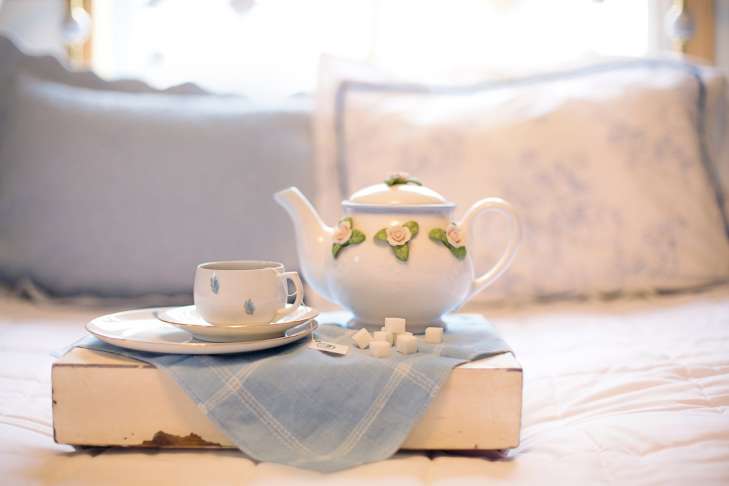Deep, pronounced indigo color; when lemon is added, the drink takes on a lilac hue.
Light herbaceous taste, slightly sweet, with slightly noticeable sourness and metallic notes.
What is the effect of blue tea
Blue tea is used to improve blood circulation in the brain and stimulate memory.

The beneficial effects on the brain of Clitoria have been confirmed by scientists.
The plant also has a good effect on the functioning of the nervous system, strengthening the nerves.
Anchan has anti-glycation properties, which allows you to keep your skin young longer.
Additionally, the flavonoids (including quercetin) found in blue tea increase collagen levels, strengthening hair and skin cells and maintaining hydration in epidermal cells.
Anchan calms well and normalizes the emotional background, promotes relaxation, increases stress resistance, and prevents depression.
The sedative properties of anthocyanin help relieve insomnia.
Who should not drink blue tea
Anchan has a minimum of contraindications.
First of all, its use is not recommended for people suffering from low blood pressure.
It is not recommended to give blue tea to children; therefore, it is better for pregnant women and nursing mothers not to drink Anchan.
Of course, there is also individual intolerance to this product.
How often can you drink blue tea
First of all, you should drink tea in moderation - no more than three cups a day.
The drink should be excluded from the diet of pregnant and lactating women.
It is also not recommended for children and can be harmful to people with kidney disease, since Anchan has diuretic properties and contains a large amount of fluoride.












